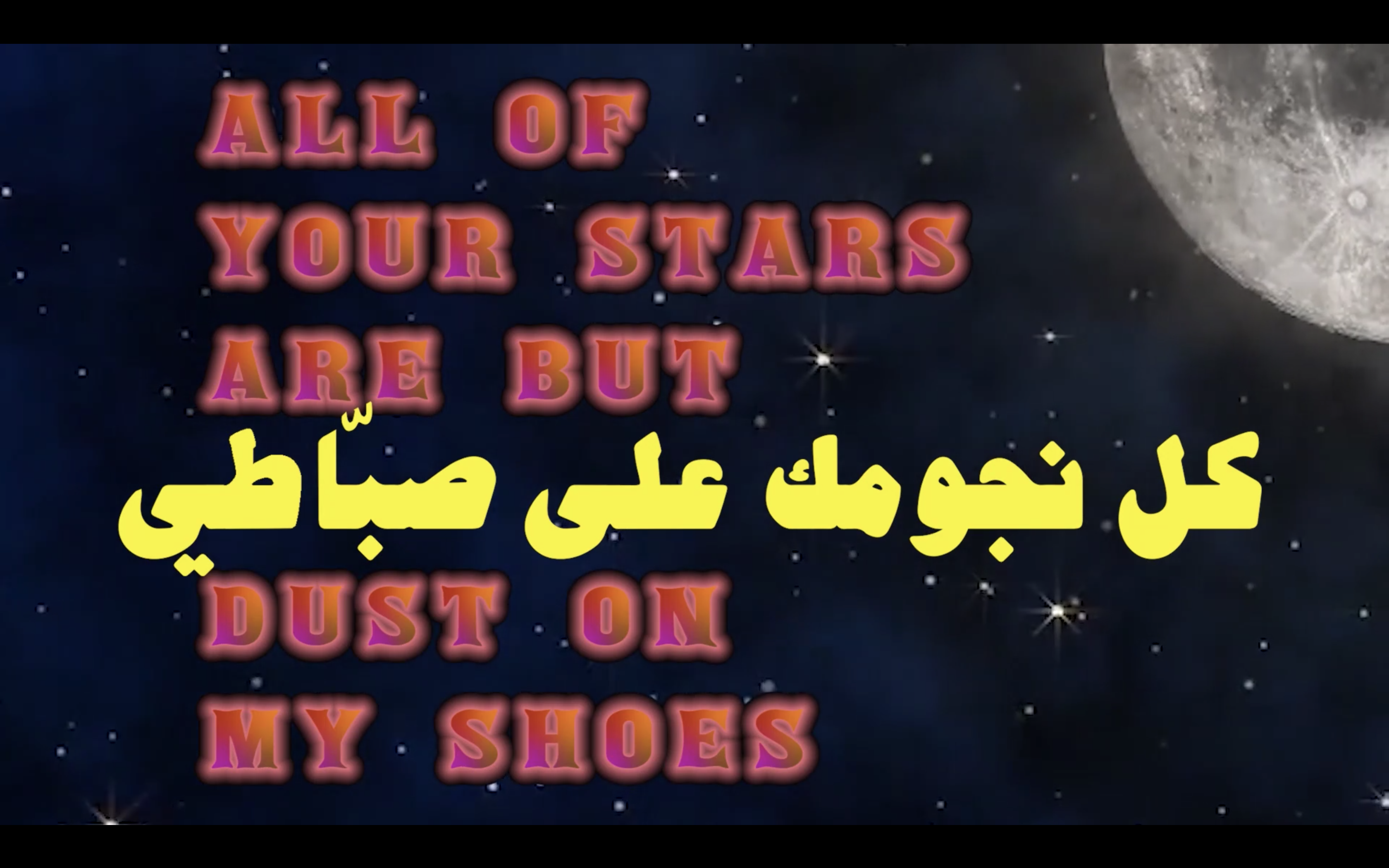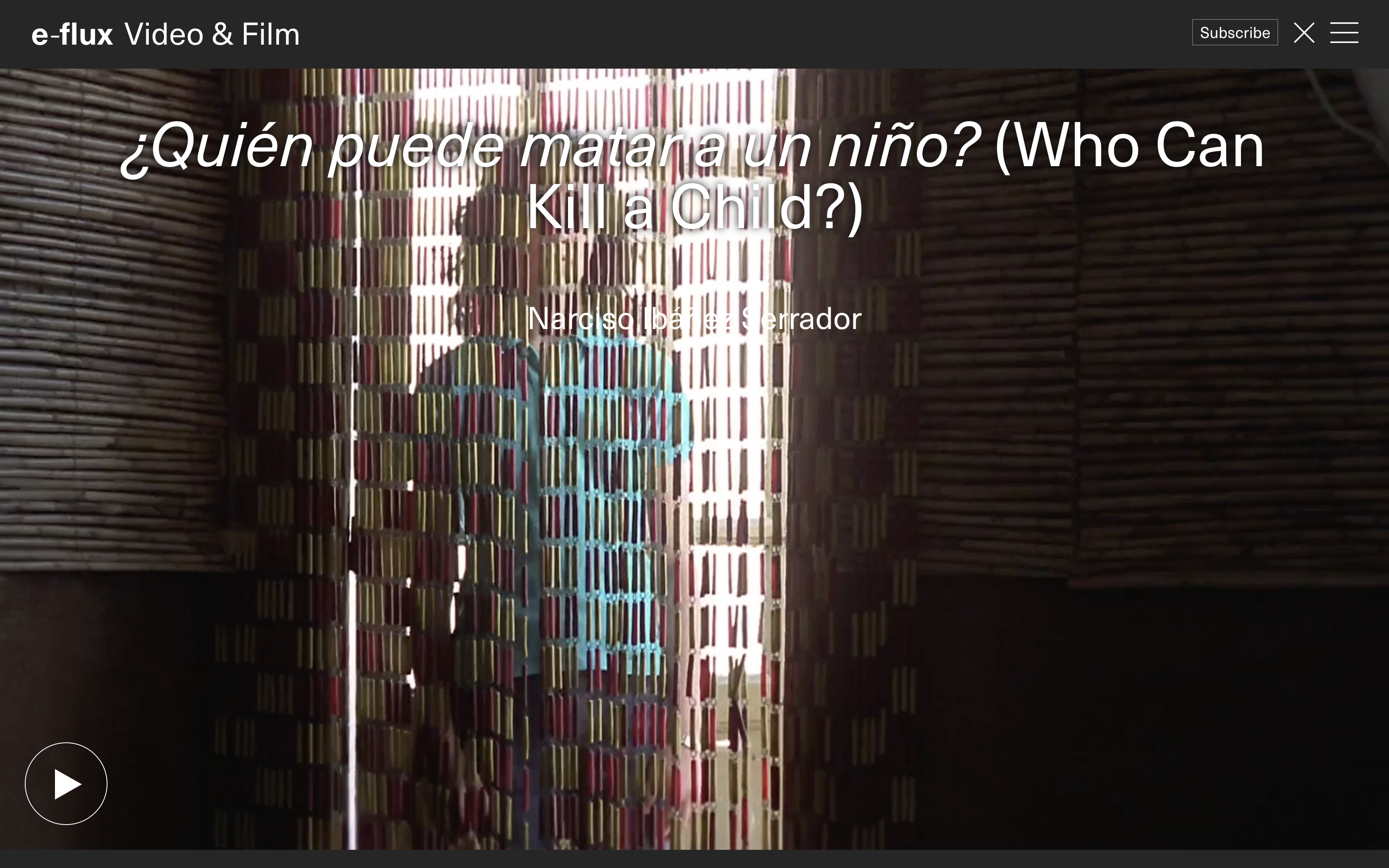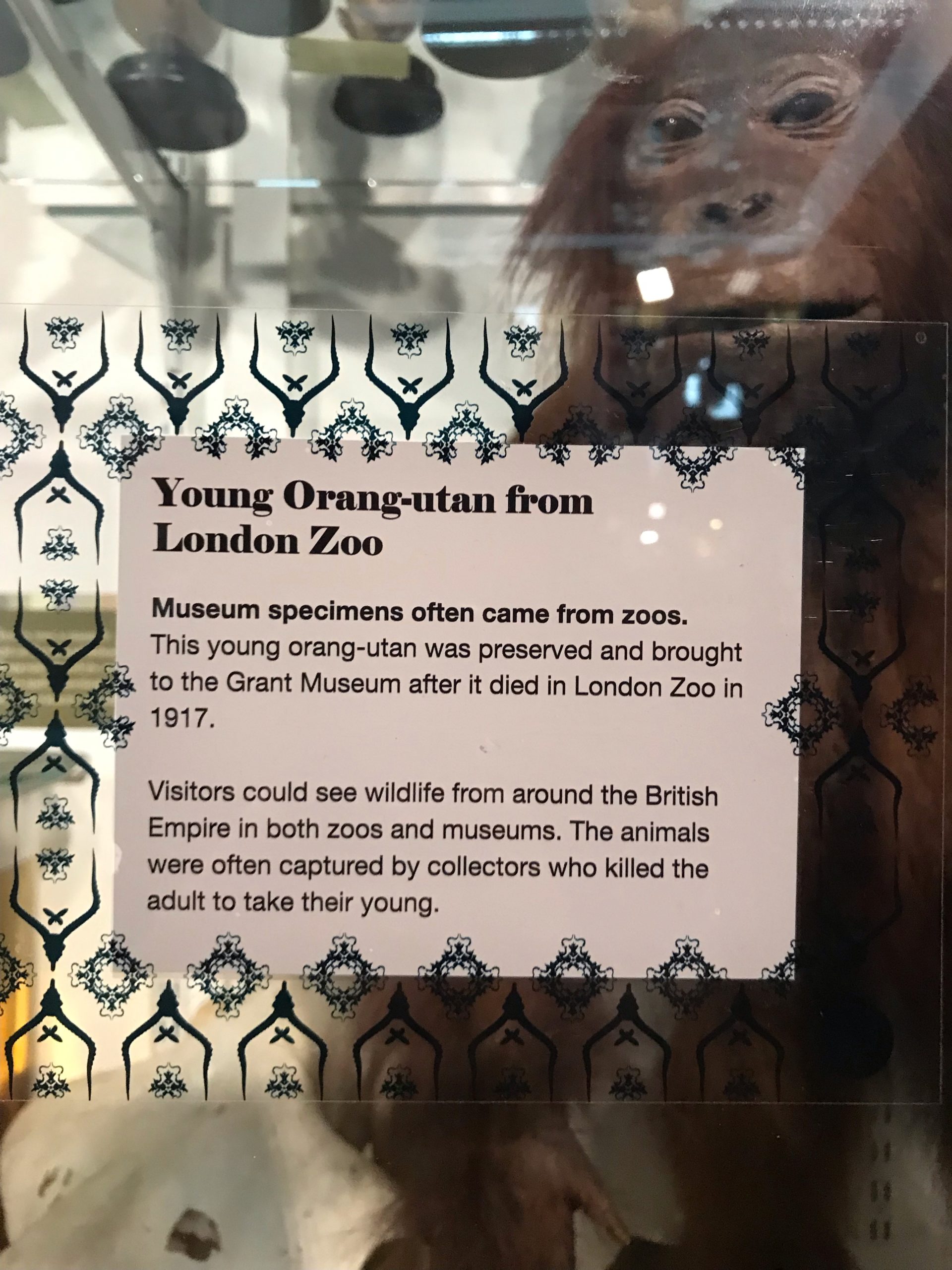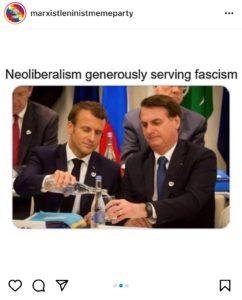The Best of 2021: an odd list
Gelare Khoshgozaran
December 2021
It’s that time of the year in the Gregorian calendar when we resort to retrospection and the construction of cycles in order to get up, dust off and start anew. I sat down and looked at my calendar, journals, bookmarks, lesson plans, tweets, emails and digital notes. This Winter Solstice list comprises, in no particular order, 21 pieces that held me together through this year of falling apart. It’s an odd list, both in that 21 is an odd number and in that its contents are unusual: they are texts that made me want to write; collective actions that made me think not all is yet lost to the propaganda of the individual; grassroots efforts that invested in livelihood when all odds were against life; images that touched my heart; words that caressed me; feelings that set my brain on fire.
1.
“Four Theses on Aesthetics”
Rizvana Bradley and Denise Ferreira da Silva
To toil within or rail against the field of representation is already to be enmeshed in the aesthetic, for it is by way of the aesthetic that the ontological ground on which we are said to stand becomes experience.1
This is arguably the most important and most difficult text of 2021 on aesthetics, signaling a new direction for “toiling within” or “railing against” a discourse enmeshed in the histories and lives of fascism and tyranny worldwide. As one of the remaining fans of free and public Zoom webinars, last October I tuned into an event on aesthetics organized by The Sojourner Project, a mobile Black Studies academy initiated by the Practicing Refusal Collective (formed in 2015 by Professors Tina Campt and Saidiya Hartman), featuring the authors and members of The Otolith Group, Anjalika Sagar and Kodwo Eshun. At the end of the conversation, Eshun described this writing in words I could not type fast enough to capture verbatim, but here is what I remember: “I think of Denise and Rizvana’s work as treating philosophy like an unexploded bomb – an explosive with many intricate parts which you need to dismantle with extreme caution and extreme care.”2

2.
All of Your Stars Are but Dust on My Shoes
Haig Aivazian
A busy schedule and increasing social anxiety compounded by the unease of Q&As under COVID-19 was enough to convince me to watch this work online, despite having the choice to go back to my beloved blackbox of REDCAT Theater in Los Angeles. Curated by Bérénice Reynaud and Eduardo Thomas, the program included two of Aivazian’s recent works, including All of Your Stars Are but Dust on My Shoes (2021) – a heart-wrenching tale of light and darkness told through the subtle rearrangement of the empire’s narrative elements.
3.
A Letter
Against
Apartheid
A long scrolling list of art and cultural workers endorsed a letter that unabashedly states: “Israeli apartheid is sustained by international complicity, it is our collective responsibility to redress this harm.” Signing such petitions might be a small gesture far from a real commitment to materially redress harm, but browsing through the list makes it apparent that even in 2021, the symbolic realm has a differently palpable weight when it comes to the question of Palestine. You can still add your name here.
4.
The Funambulist, Issue 37: Against Genocide
edited by Zoé Samudzi
The Funambulist, one of the most rigorous publications on “the politics of space and bodies,” meets Zoé Samudzi, one of the most unique thinkers of our time in this guest edited issue. In an ironically humble preamble, Samudzi, a scholar of genocides, poses the following:
I’ve never been good at math so surely there’s a complicated calculus I don’t understand, but how many Iraqi or Yemeni or Somali or Afghan wedding guests equals the life of one U.S. infantryman? The accountants in Operation Enduring Freedom and the soon-to-end Operation Freedom’s Sentinel are cooking the books.3
Purchase the hard copy for a cover-to-cover cuddle!
5.
A Map to the Door of No Return at 20: A Gathering
A Map to the Door of No Return at 20 was a “4-day virtual webinar/seminar and participatory workshop” celebrating the 20th anniversary of Dionne Brand’s eponymous book. For four days in November, I woke up early to tune in to as many sessions of #Mapat20 as I could. I first learned about Dionne Brand’s A Map to the Door of No Return: Notes on Belonging (2002) through Yaniya Lee. I was visiting Toronto for an artist talk and was introduced to Yaniya through a dear mutual friend. Yaniya generously came to my talk, and in the end asked if I was familiar with Dionne Brand’s work, this book in particular. I wasn’t, but the title was so captivating that I spent the second leg of my trip impatiently thinking about this book I was going to read! I purchased A Map when I got back to Los Angeles. I read it, re-read it, and studied Dionne Brand’s other works, including her films. A Map shaped my spatial understanding of belonging in the diaspora as a reorientation of my “most fragile diplomatic relations,”4 and a practice of hovering over the lines on a map. This virtual gathering offered me another space of belonging with the scholars, artists, thinkers and poets I had admired over the years through learning what A Map meant to them.

6.
Video & Film
e-flux
For those interested in alternative cinema, weird independent shorts, artist films you can’t afford to travel to see in museums, and other obscure gems, e-flux Video & Film’s recent programming has been on fire! Things come and go, they last for a short or longer time, there are runs and reruns, but it’s all free and the programming has been rigorously framed. Recent highlights include the program Unreformable convened by Adelita Husni Bey as part of the Artist Cinema series; Kamal Aljafari’s Port of Memory (2010) as part of Staff Picks; and Memories for Forgetfulness Elsewhere: Moving Images from the Middle East/Arab World After Empire, curated by Irmgard Emmelhainz, currently on view through February 16, 2022.
7.
@marxistleninistmemeparty
Memes are truly radical in that their raison d’être is becoming a commons. The labor of mostly young people who remain anonymous is poured into a medium that merges semiotics and affect in untamed ways. I am grateful for the laughter and the unspoken camaraderie these memes offered me throughout the year, bumping my head against that cement wall in the deadend of liberal politics.
8.
Abortion
legalized in Argentina, decriminalized in Mexico
After decades of tireless work by feminist activists, abortion was legalized in Argentina and decriminalized in Mexico in 2021. There was screaming, dancing, crying and celebrating the mere possibility of a safer life for women – this fundamental right stolen by the patriarchy that took so many lives and ruined many more.
9.
The Equity, Diversity, and Inclusion Industry (w/ Rinaldo Walcott)
The Anti-Girlboss Socialist Club
The word is out that Rinaldo Walcott, a professor at the Women and Gender Studies Institute at University of Toronto, is working on a new book about the Equity, Diversity, and Inclusion (EDI) industry. If you’re itching to learn about EDI initiatives both from an historical perspective and why they are not only inadequate, but also damaging to revolutionary change, this inaugural Anti-Girlboss Socialist Club episode is a great start. And please don’t forward this to the Vice Provost to the Chair of the Students’ Affairs at the Associate Dean’s Office For Diversity, Inclusion And Equity at my or your institution!
10.
Project ANAR
and grassroots organizations helping Afghan refugees with Humanitarian Parole5
Mutual aid, beyond sending Venmo payments, at the larger scale means sharing one’s non-monetary assets. What can a US citizen and permanent resident do when the empire with the world’s largest military pulls out of a country it has ravaged for decades, leaving millions of people in life threatening danger? Project ANAR, an acronym for “Afghan Network for Advocacy and Resources” (and “pomegranate” in Farsi, the national fruit of Afghanistan), connects volunteer US residents and citizens with a network of lawyers and interpreters to help stranded Afghanistanis flee violence. All people deserve to live in safety, not just intellectuals, artists or activists. This organization continues to help with that effort, and you may be able to help support these efforts, too.
11.
Radio Alhara
Broadcasting from Bethlehem, Ramallah and Amman, Radio Alhara first started as a quarantine project in March 2020. Online radio stations were such a gift during intense isolation in the face of lockdowns necessitated by the pandemic. Through their tunes they would connect us while making breakfast in the kitchen in one corner of the world, and drinking a nightcap in another. In May 2021, as the people of Colombia took to the streets and were brutalized by the police and government forces, Radio Alhara’s nonstop programming as the Sonic Liberation Front brought solace and joy to our anxious confinements. Those 24-hour (and later 96-hour) nonstop DJ sets gave time a dimension other than “anxiously waiting.” They gave us a space to re-imagine an international solidarity against tyranny, fascism and apartheid, and a community connected through the wavelengths.
12.
“scars, not wounds”
K’eguro Macharia
What differentiates a scar from a wound is healing – and a transformation of the skin and tissue that bears the mark of time. Nobody but K’eguru Macharia can write so granularly and so profoundly on scars, not wounds.
13.
“Grief Is Another Word For Love”
Sisonke Msimang
Revisiting moments of collective grief through art and writing has been a helpful practice of unforgetting for me. Sisonke Msimang’s words take me back to the days that only in the most oblivious of minds are over: “We have always navigated cruelty by doubling down on love. Grief is another word, of course, for love. We don’t mourn those we never cared for.”

Photo courtesy of author.
14.
Displays of Power: A Natural History of Empire
Grant Museum of Zoology at University College London
The best exhibition I saw in 2021 was not an art exhibition at a gallery, but a science exhibition at a university museum. The type of intervention in Displays of Power: A Natural History of Empire had nothing to do with bringing art into the space of a non-art museum. Instead, I experienced an unsettling rearrangement of the way non-art museums – in particular, a museum of zoology – presents information to students and the general public. Co-curated by Subhadra Das, this exhibition did a lot more to address power than any hefty contemporary art exhibition has come close to doing. It did so literally at the microbial level.
15.
A thread on “leaving”
Lina Mounzer
I can easily write a whole “the best of” list on Lina Mouzer’s writing alone, but this Twitter thread really hit home for me – as I’m sure it did for many of us on either side of “leaving” and “staying” who continue to live between the two states on either side of borders and to navigate the geopolitics of the diaspora.
16.
Jesse Darling in Queer Correspondence
a virtual conversation curated by Eliel Jones
This unrecorded, unpublished, untranscribed conversation between artist Jesse Darling and curator Eliel Jones took place as the culminating event of his mail art initiative Queer Correspondence. Organized around “the offerings and limitations of mail-art,” the conversation took place before access to vaccines in the West would make the return to the brutal “normal” a material reality. In its meandering from the personal to the formal and structural, at times the conversation would land on a witty note about the exhausting reality of the worlds we inhabit. “Everything the artworld touches, it slowly destroys or kills it,” stated Jesse Darling at some point, which like a good performance, put a smile on my face for something I should probably be crying over instead.
17.
FCA Emergency Grants COVID-19 Fund
At the onset of the COVID-19 pandemic, the Foundation for Contemporary Arts not only joined the Artist Relief effort, but also turned their Emergency Grant – a small, monthly, application-based grant to help with emergencies of a new exhibition, event or performance – to emergency relief funds for artists who had lost opportunities due to the pandemic. This meaningful shift, continued through 2021 helped many artists in uncertain positions across the country, many of whom never had the opportunity to realize their projects.
18.
Collective for Black Iranians
Collective for Black Iranians was founded in August 2020 by six Black and Afro-Iranians. They worked through 2021 to create content and share stories, art and consciousness. They bring you killer rap from Bandar Abbas, historical research on the African diaspora in Iran, and wisdom from the continent of Africa and its diaspora.
19.
Penguins still roaming aquariums and zoos
A tradition borne out of the quarantine and long closure of public parks, penguins are still roaming aquariums. Their walking continues to remind us of the artificiality of borders.
20.
Home Workspace Program
Ashkal Alwan
After months of uprisings followed by a devastating explosion in the port of Beirut, the non-profit art center Ashkal Alwan opened its doors, this time online, free and open to the public. The Home Workspace Program offered four individual chapters and technical workshops. Their generosity in providing a space for discourse, working and sharing, which brought many of us in isolation around the world together on the same screen, is one more reason to love Ashkal Alwan and the worlds it continues to build.
21.
“Mapping Exile: A Writer’s Story of Growing Up Stateless in Post-Gulf War Kuwait”
Mona Kareem
Exile, conjugated in the present tense and not-as-metaphor, is already considered archaic. With what voice do the writers and artists who are stateless, refugees and asylees – and NOT in the metaphorical sense that has been so often fetishized – write with? Mona Kareem’s dazzling essay is a good start to your unlearning:
I realize that this notion, this rupture of time-place-memory-language, is a shared art among immigrants, who cannot simply carry on across geography. They resurrect themselves, shed their tongues, sometimes even assemble whole new families, drip new blood. Yet it was clear to me that my family viewed my exile as something temporary.6
Footnotes
- Rizvana Bradley and Denise Ferreira da Silva, “Four Theses on Aesthetics,” e-flux 120 (2021), https://www.e-flux.com/journal/120/416146/four-theses-on-aesthetics/.
- Kodwo Eshun, panel discussion, “Aesthetics,” The Sojourner Project, 8 Oct. 2021.
- Zoé Samudzi, “Against Genocide: Introduction,” The Funambulist 37 (2021), https://tinyurl.com/3xuuurby.
- Dionne Brand, A Map to the Door of No Return: Notes to Belonging (Toronto: Vintage Canada, 2011), 83.
- Humanitarian Parole allows an individual who may be inadmissible or otherwise ineligible for admission into the United States to be in the United States for a temporary period for urgent humanitarian reasons or significant public benefit. See: “Humanitarian Parole,” U.S. Citizenship and Immigration Services, 12 Nov. 2021, https://www.uscis.gov/forms/explore-my-options/humanitarian-parole.
- Mona Kareem, “Mapping Exile: A Writer’s Story of Growing Up Stateless in Post-Gulf War Kuwait,” LitHub, 25 Oct. 2021, https://lithub.com/mapping-exile-a-writers-story-of-growing-up-stateless-in-post-gulf-war-kuwait/.
Gelare Khoshgozaran is an undisciplinary artist and writer who, in 2009 was transplanted from street protests in a city of four seasons to the windowless rooms of the University of Southern California where aesthetics and politics were discussed in endless summers. Her work has been presented in solo and group exhibitions at the New Museum, Queens Museum, Hammer Museum, LAXART, Human Resources, Visitor Welcome Center, Articule (Montreal), Beursschouwburg (Brussels), Pori Art Museum (Finland) and Yarat Contemporary Art Space (Baku, Azerbaijan). She was the recipient of a Creative Capital | Andy Warhol Foundation Arts Writers Grant (2015), an Art Matters Award (2017), the Louis Comfort Tiffany Foundation Award (2019), and the Graham Foundation Award (2020). Her essays and interviews have been published and are forthcoming in contemptorary (co-founding editor), The Brooklyn Rail, Parkett, X-TRA, The Enemy, Art Practical, Ajam Media Collective, The LA Review of Books and Temporary Art Review, among others.
